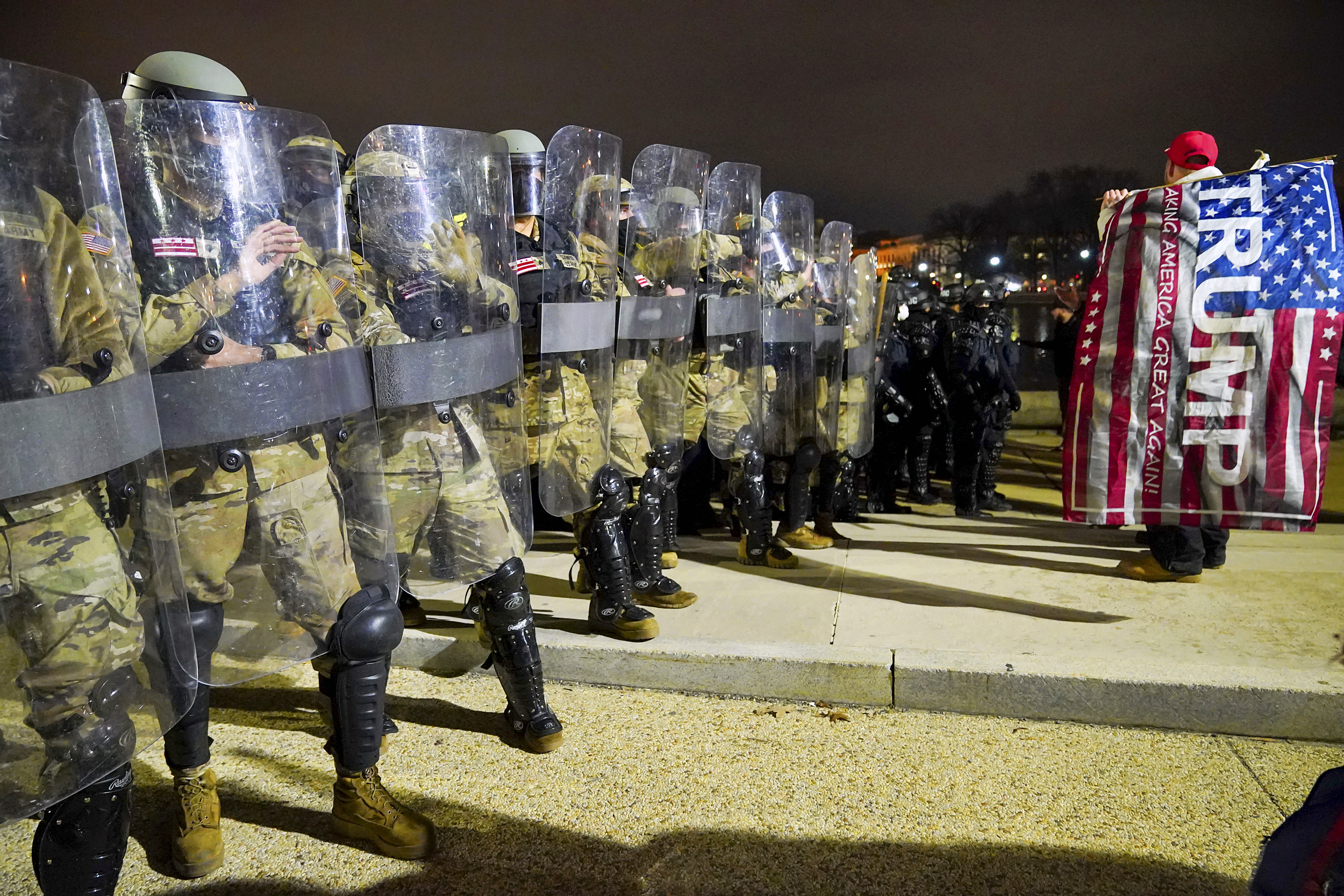
The protests at the Capitol on January 6th were just that, they were protests. The media’s constant use of the term “insurrection” to describe the protests is a Soviet-era style tactic to demonize anyone who dare disagree with the state.
Let’s be clear, this was no insurrection. There was no attempt to seize power or control of the government in any capacity. Nobody protesting had any offensive weapons, and all the protesters left voluntarily after a brief period lasting less than an hour.
By any reasonable assessment, this was no insurrection. To claim it was is simply media propaganda to prop up the state’s interests.
But behind the media propaganda, real people are being mistreated and sitting in jail cells without being afforded due process.
Many of those arrested on January 6th for crimes that mostly equate to vandalism are being held in solitary confinement, without bail, and their legal counsels are being denied access to evidence.
So all of this brings up the question, are these people who were charged on January 6th being held as political prisoners?
Any reasonable legal observer can see they are not being treated the same as other defendants in the criminal justice system. In fact, child abusers and rapists are often allowed to make bail, but people being charged with protesting on January 6th are being denied these rights.
Does that seem like reasonable and equal justice?
Politico recently published a report documenting the mistreatment of those arrested for protesting on January 6th.
In the report, one defendant named Ryan Samsel was left with a skull fracture and blindness in one eye after being beaten by prison guards. The report by Politico states the guards were under the assumption the defendants where “white supremacists”, which fueled their mistreatment despite the fact that there is no evidence these defendants possess any racists views or opinions. Nor have they been charged with any hate-related crimes.
Samsel’s lawyer Steven Metcalf reported that after his client complained last month about slow delivery of toilet paper, he was zip-tied and then taken to a cell outside the view of surveillance cameras and brutally beaten by guards.
“I have seen Ryan”, said Metcalf. “He has two black eyes to this day, two weeks later. All the skin is ripped off both wrists, which shows the zip ties and how tight they were.”
“Other inmates said his face looked like a tomato that was stomped on.”
Metcalf is filing a lawsuit against the two guards in the incident.
But besides the physical beatings that have now been documented by Politico, these defendants are being exposed to mental abuse as well.
Many defendants that were charged with protesting on January 6th are being held in solitary confinement, with no contact with anyone for 23 hours a day. Such treatment is usually reserved for the worst and most violent offenders in the world.
Even beyond that mistreatment, lawyers for the defendants claim they are being denied timely access to evidence so that they can mount a proper defense, once again prolonging the time spent in jail by those accused.
All of these confirmed accounts of abuse, mistreatment, and denial of civil rights begs one simple question. Are these defendants being treated as political prisoners?
We are all well aware of how political prisoners are treated around the world. In countries like China or North Korea, those that dare speak out against the state are openly denied all legal rights and summarily sent off to jail as a signal to others who would dare do the same.
Is that what we are witnessing here? Is the government intentionally mistreating these defendants as a way to send a signal to other would-be protesters?
If that’s the case, it’s a chilling and frightening development that signals a direct assault on the constitutional rights of all Americans.


SHARE